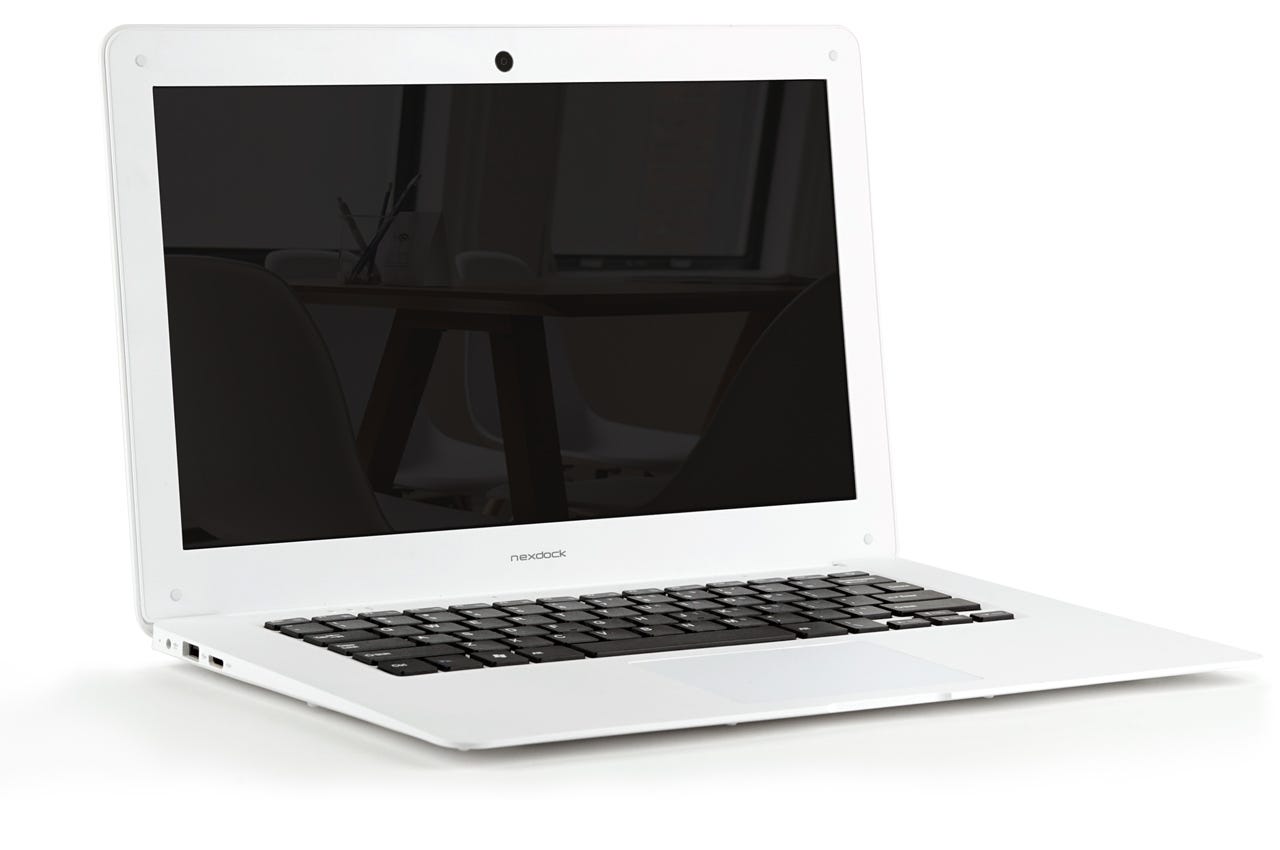Top 10 crowd-funded PCs: How Silicon Valley's heirs are building the next great computer


[We've updated our Top 10 list for 2016, as one of our noteworthy previous entries, Jolla, has decided to end its tablet run.]
Though the PC market is no longer seen as the massive growth industry it once (recently) was, that hasn't stopped budding entrepreneurs from trying to shake things up via crowd-funded projects (even if they may not seem as sexy as other tech-related devices).
With the drastic reduction in parts costs (sometimes including reliance on a free operating system like Linux) and the ability for small firms to lower manufacturing costs, you no longer need to be an Apple or HP to produce a computer that looks professional. Thanks to crowd-funding sites like Kickstarter and Indiegogo, would-be Steve Jobs can pitch their ideas to the public and get the money they need to turn their computing visions into reality.
In addition to some of the most successful crowd-funded PCs offered to date, we are updating this list to include some promising new entries.
C.H.I.P.
No, Erik Estrada has not turned into a maker. But C.H.I.P. is quickly becoming as popular as his '70s TV classic CHiPs, thanks to a price that makes the Raspberry Pi look like a Mac Pro in comparison. Calling itself the "world's first $9 computer," C.H.I.P. backers set a funding goal of $50,000 on Kickstarter, and blasted through it -- at last count, well over $1 million has been pledged. While you certainly get a computer for $9 -- 1GHz Allwinner processor, 512MB of RAM, 4GB of storage, built-in Wi-Fi and Bluetooth, and Linux OS -- the only extra item you'll get is a composite cable. Another $10 either gets you a VGA adapter or battery pack, and you can spend even more to get an HDMI adapter or PocketC.H.I.P., a portable version complete with touchscreen and built-in keyboard.
Endless Computers
While the team behind Endless Computers can't match the $9 price point of C.H.I.P. (nor its Kickstarter total), it shares a similar goal of bringing affordable computing to the wider world. In particular, it hopes to redesign the PC for the developing world, with a unique look (almost like a little ghost) and an OS developed in-house and based on the smartphone aesthetic. The base $169 model is powered by an Intel Celeron N2807 processor, 2GB of RAM, and 32GB of storage, with a $189 version adding a speaker and Wi-Fi, and the $229 edition coming with a 500GB hard drive instead. As part of its philanthropic mission, Endless Computers allows you to buy one and give one for $500, buy a classroom's worth of Endless PCs for $2,000, or equip a whole school for $5,000.
NexDock
The NexDock takes a novel approach to a crowd-funded PC, taking the concept of the "second screen" for mobile devices to the next level. Essentially a laptop with most of the innards removed, it consists of a 14-inch display, Bluetooth keyboard, and an HDMI port to connect to your smartphone, tablet, or laptop. It ideally works with Windows devices that support the Continuum feature, but can serve as a larger screen for iPhones, iPads, and Android phones and tablets as well. It can also be the primary display for PCs on a stick, or be a more portable secondary display for your primary laptop. The NexDock is currently raising funds on Indiegogo -- $119 gets you a pre-order unit -- but is only a little more than 50-percent funded with a month left in its campaign.
Novena
Another computer that smashed its fundraising goals is Novena, an open-source computer platform that has tripled its initial requirements at Crowd Supply. Novena is based around a Freescale iMX6 ARM CPU and offers a number of options for would-be tinkerers: $550 for the circuit board to build a system around, $1,315 for an all-in-one PC version (complete with 1080p HD display), and $2,195 for a laptop. (A $5,000 "heirloom laptop with a wood case is no longer available.) Those prices are obviously higher than typical commercial versions, but Novena gives hackers access to nearly everything, including operating system (though it ships with the Debian version of Linux), in a way that "closed" systems don't usually allow.
Librem 15
Like Novena, the Purism Librem 15 laptop is built on Linux, though it's emphasizing the OS experience rather than hardware hacking. While there have been a few Linux-based notebooks available over the years, the Librem 15 is trying to make its platform as open as possible to maximize freedom and privacy (its terms). For instance, it hopes to get Intel's BIOS code opened up, and Purism is manufacturing its own motherboard. It's not skimping on specs, either, as the Librem 15 will ship with a Core i7-4770HQ processor, 4GB of RAM, 500GB hard drive and 1,920x1,080 for the base $1,900 configuration. It can handle up to 32GB of RAM, 1TB of storage, and a 3,840x2,160 display if you're willing to pay more when the first laptops start shipping in April.
Kano
The huge success of Raspberry Pi, , has spurred a mini-industry of Pi-based products looking to be funded via Kickstarter and its ilk. Kano is one of the slickest and most well-funded, lapping its initial $100,000 goal more than 15 times. It provides a Pi-powered mini-computer in a box, complete with a tiny custom case, a cute little orange keyboard and touchpad, and even a diminutive external speaker. You also get beautifully illustrated instructions on how to put the Kano together, which its Kickstarter site shows can be assembled in a couple of minutes. The $119 $150 kit (or $999 for a 10-pack, since the Kano is designed to be kid friendly for educational purposes) even includes your name being inserted into the Kano source code, something Apple probably won't be doing anytime soon.
Pi-Top
While Kickstarter has Kano, Indiegogo has Pi-Top, a successfully funded laptop project built on Raspberry Pi. DIY laptops have never caught on the same way that building your own desktop PC has, but Pi-Top more than doubled its funding goals for hacker types that want to create a notebook around the Raspberry Pi Model B+. (One of its "stretch" goals it could meet with the extra funding is support for alternative boards like BeagleBone Black.) For $299 ($50 less if you already have a Pi board of your own), it comes with an injection-molded case, 13.3-inch LCD, battery, keyboard, touchpad, and everything else you need to put it together. Once you've assembled it, Pi-Top's founders hope you use it to learn more about your own devices for home automation, robots, and more through lesson plans it's integrated into the laptop as well as placing online.
Tango
Not to be confused with Microsoft's one-time Windows Phone OS update, the Tango project (run on both Kickstarter and Indiegogo) proves that Linux isn't the only OS that can have a crowd-funded PC. Tango is a Windows PC (either Windows 7 or 8.1) that fits in your pocket, yet somehow still manages to pack an AMD A6-5200 quad-core processor, anywhere from 2GB to 8GB of RAM, and a solid-state drive. It does this by offloading some of the parts -- such as the heatsink, fan, and connectors-- onto its docking station, which transfers a lot of the heat away from the portable PC unit. Tango is already being sold from $349, but the one catch is that it only comes with a trial version of Windows 7, so factor in the price of a Windows license as well. Of course, Tango can also run Linux if you choose.
Pyramid Flipper
Unuiga S905 (click to enlarge)
While some of our new entries are in the middle of their crowd-funding campaigns, Pyramid Flipper is still gestating, but is taking the concept of "crowd" even further. It's a follow-up project to the Eve T1, a low-cost Windows tablet from Finnish company Eve Technologies. The T1 was a Windows 8.1 machine, but with Pyramid Flipper, Eve Tech is looking to create the first Windows 10 crowd-"developed" tablet. This means the Eve community will discuss the specs they want in the Pyramid Flipper before Eve Tech employees source the components for the final build. They are already looking for the touchscreen, and the community has decided on including a stylus, but much remains to be determined by the people who will presumably purchase Pyramid Flipper in the end.
Unuiga S905
The Unuiga project looks to combine a low-cost mini-PC with the Remix OS, a version of Android that has been tweaked for Windows-like productivity. For just $25, early-bird backers on Indiegogo can get the Unuiga S905, which will include a quad-core ARM Cortex-A53 processor, 1GB of RAM, and 16GB of built-in storage that fits in a case just 0.8 inches high. To keep the price down, it doesn't include a keyboard, though that can be purchased for an additional $15. Unuiga is far from reaching its $75,000 goal, however, with a month to go.
Gallery:Browse the crowd-funded PCs